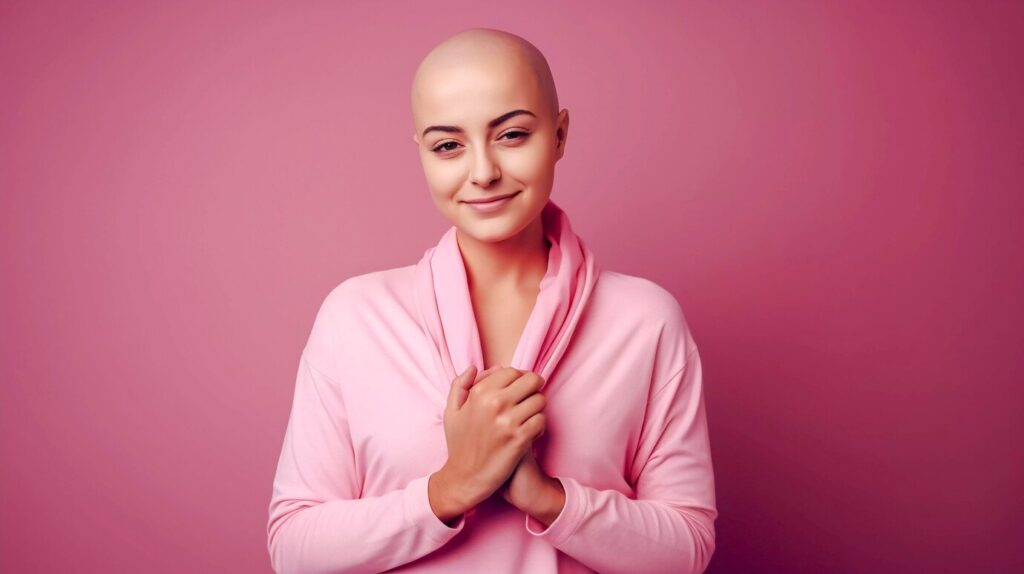Table of contents
Cancer continues to be one of the most complex and challenging diseases in the world, affecting millions of lives every year. As patients and researchers search for alternative or complementary therapies, CBD (cannabidiol) has emerged as a potential candidate. But what does the science actually say about CBD for cancer?
While it’s important to clarify that CBD is not a cure for cancer, growing research suggests it may offer supportive benefits in managing symptoms and enhancing quality of life. In this blog post, we’ll explore what the latest research reveals, how CBD may interact with cancer cells, and where the future of CBD and cancer research is headed.
What is CBD?
CBD, or cannabidiol, is a natural compound found in the cannabis plant. Unlike THC (tetrahydrocannabinol), CBD is non-psychoactive, meaning it won’t make users feel “high.” It interacts with the endocannabinoid system (ECS) — a complex network that regulates key bodily functions such as pain, mood, inflammation, and immune response.
Thanks to its anti-inflammatory, analgesic, and anti-anxiety properties, CBD is being increasingly researched as a supportive treatment for various health conditions, including cancer.
The Role of CBD for Cancer: What Science Says

Although research is still in early stages, some promising findings have been made regarding CBD for cancer. Most of the research to date focuses on CBD’s potential to relieve symptoms caused by cancer or its treatments — such as chemotherapy and radiation.
Here are some of the most significant findings:
🧬 1. Anti-Tumor Effects (Preclinical Studies)
In laboratory settings, CBD has shown the ability to inhibit the growth of certain cancer cells, including breast, lung, prostate, and colon cancers. Some studies suggest CBD may:
- Inhibit tumor angiogenesis (formation of new blood vessels)
- Promote cancer cell apoptosis (cell death)
- Suppress metastasis (spread of cancer)
However, it’s critical to note that most of these studies have been conducted in animal models or petri dishes, and not yet in large-scale human trials.
💊 2. Relief from Chemotherapy Side Effects
CBD is often used by cancer patients to manage side effects of chemotherapy such as:
- Nausea and vomiting
- Loss of appetite
- Neuropathic pain
- Fatigue and sleep disturbances
In fact, a combination drug called Sativex (which contains both CBD and THC) is approved in several countries for treating cancer-related pain.
🛌 3. Improved Quality of Life
Some patients report improved well-being and reduced anxiety, depression, and insomnia when using CBD during cancer treatment. This suggests that CBD may act as a complementary therapy, supporting emotional and mental health alongside physical health.
🧪 4. Anti-Inflammatory and Immune-Modulating Effects
Chronic inflammation is often associated with cancer progression. CBD has been shown to modulate immune responses and reduce inflammation, which could play a protective role in certain types of cancer — though more studies are needed to confirm this effect.
How CBD is Used by Cancer Patients

CBD can be administered in various forms depending on individual needs and preferences:
- CBD oils and tinctures for fast absorption
- CBD capsules for consistent dosing
- Edibles and gummies for convenience
- Topicals and creams for localized pain relief
Dosage varies depending on factors such as body weight, severity of symptoms, and individual tolerance. Cancer patients should always consult with their healthcare provider before starting CBD, especially when undergoing chemotherapy or other treatments.
Limitations and Considerations
Although the potential of CBD for cancer is exciting, it’s important to understand its limitations:
- Not a cure: CBD should not be used as a replacement for traditional cancer treatments.
- Drug interactions: CBD may interact with chemotherapy drugs and other medications.
- Lack of regulation: Not all CBD products are created equal. Always choose third-party tested, high-quality CBD.
FAQs About CBD for Cancer
No. While early research shows CBD may have anti-cancer properties, it is not a cure. It is best used as a supportive therapy alongside traditional treatments.
CBD is generally considered safe but may interact with certain medications. Patients should consult their oncologist or healthcare provider before use.
CBD may help reduce nausea, pain, appetite loss, anxiety, and inflammation, making cancer treatment more tolerable for some patients.
Full-spectrum CBD may offer enhanced effects due to the “entourage effect,” but patients who want to avoid THC should choose broad-spectrum or isolate products.
Yes, several ongoing clinical trials are investigating the use of CBD for various cancer types and symptoms, but more data is needed for conclusive recommendations.
The Future of CBD for Cancer Research
The field of cannabis and cancer research is rapidly evolving. As legal restrictions lift and interest grows, we can expect to see more clinical trials that explore:
- Optimal dosing strategies
- Long-term safety and efficacy
- Specific cancer types that may respond to cannabinoids
- How CBD works alongside chemotherapy and immunotherapy
If future studies continue to support early findings, CBD could become a mainstream component of integrative oncology.
Final Thoughts
CBD for cancer is not a miracle cure, but it holds great promise as a supportive aid in cancer care. Its potential to alleviate symptoms, reduce inflammation, and improve quality of life makes it a topic worth watching.
As with any supplement or alternative therapy, always talk to your doctor before using CBD — especially if you’re undergoing treatment. When used responsibly, CBD may become a valuable tool in helping cancer patients feel better and heal better.





